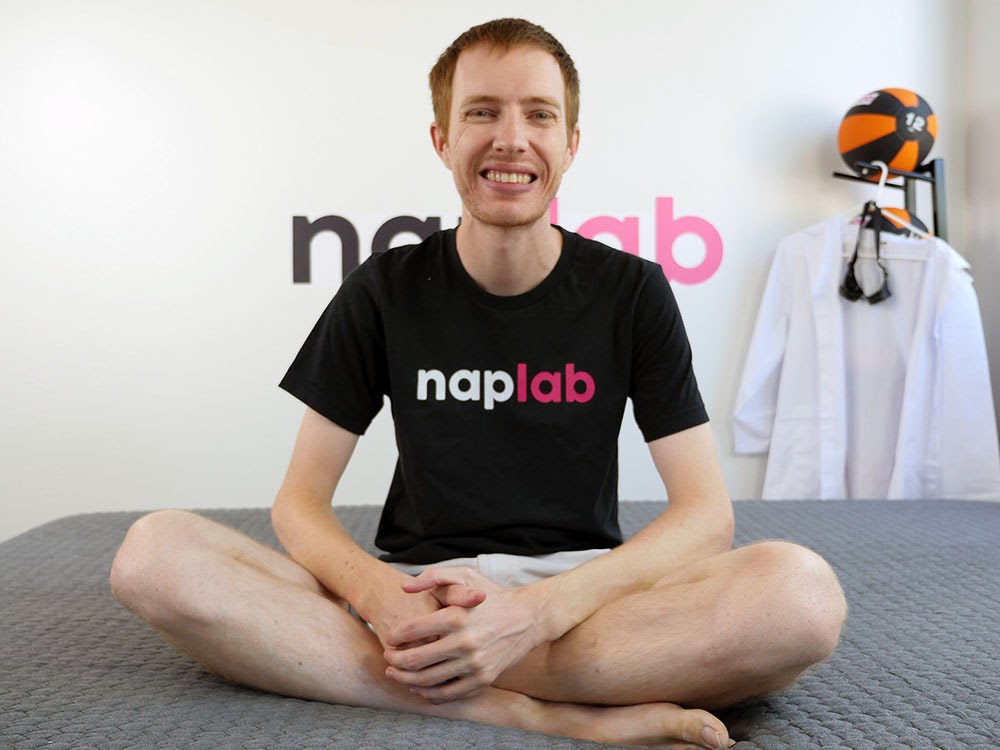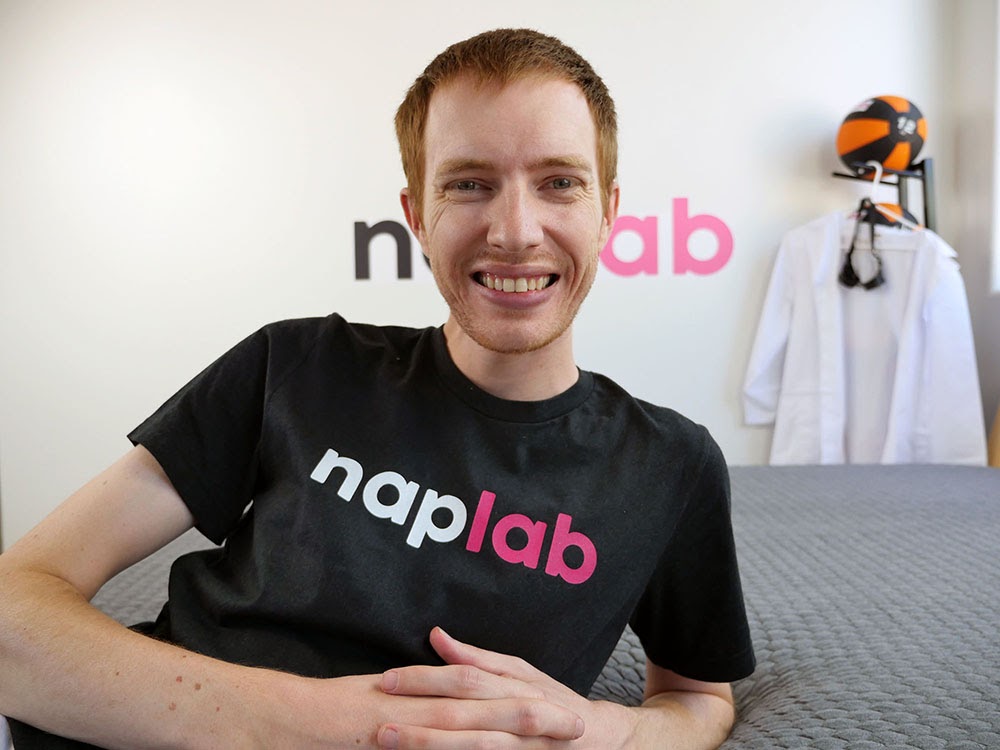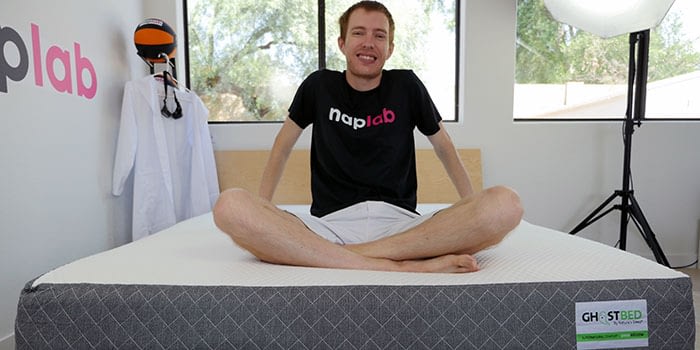By Derek Hales
NapLab, a startup launched in the summer of 2021, is committed to improving your sleep and well-being. Run by a small team of passionate product experts, NapLab aims to become your go-to destination for the best mattress and sleep product recommendations. Each product is carefully tested and reviewed based on objective data.
My name is Derek Hales, and I’m the founder and editor-in-chief of NapLab. My goal is to find and test the highest quality sleep products on the market to help consumers make the right choice. After all, no one wants to spend hundreds of dollars on a new mattress or pillow that fails to live up to expectations.
Today I’m going to share the story behind our brand. NapLab is the result of years of research and experience, and its story is worth telling. Who knows, it might become your new favorite place for unbiased product reviews and recommendations.
NapLab at a Glance
Founded in August 2021, NapLab is a product review website owned by Silver Poodle, LLC and managed by Derek Hales. I have founded three startups and tested hundreds of products over the past seven years. After extensive research, I decided to start NapLab, an online business that delivers unbiased reviews to those interested in a new mattress or other sleep products.
The Internet is filled with fake reviews, and few consumers can tell the difference between what’s real and what’s not. Some marketers receive thousands of dollars from brands to write about their products and put them in a good light. At NapLab, we want to change that.
Our team has tested more than 150 different mattresses over the past few years. We use objective data to assess the design, quality, performance, and functionality of the products reviewed. Our rating system is based on clearly defined testing criteria, and we don’t participate in “pay-to-play” schemes.

Additionally, our testing process and content creation are managed in-house. We may receive product information from brands, but we are the ones in charge of testing and research. Our team consists of passionate product experts, including my sister Kayla Hein, wife Samantha Hales — the director of finance, content manager Kyle Wandelt, and Dan Stoddard, the man behind the camera.
We have been testing and reviewing products since 2014. As you might have noticed, we publish our scoring and testing process for each product to ensure full transparency.
As far as finances go, we make money through referral links. We are not affiliated with a specific brand, but we may use external links to earn a commission. This allows us to pay for our expenses and keep doing our work. Our referral links don’t affect our review process or the recommendations made to our readers.
The Story behind NapLab
NapLab was born out of the need to fill a gap in the market. While there are dozens of other websites featuring sleep product reviews, many of them have sponsored content. At NabLab, our mission is to thoroughly test each and every product so we can write unbiased reviews you can trust.
Our team has been testing and reviewing products since 2017. I have founded three startups over the past seven years, including popular websites like Sleepopolis and Modern Castle. My work has been featured in Reader’s Digest, The Washington Post, Insider, AskMen, SheKnows, and other online magazines. It all started with an experiment I made back in college.

During my years as a student at Kansas State University, I decided to build a “how-to” website around a popular video game. This allowed me to develop the skills needed to start and run a business later in life.
After graduation, I got a job at iCrossing, a reputable digital marketing agency with offices in the U.S., the U.K, Latin America, and Germany. Working for them served as a stepping stone in my career. I’ve had the chance to collaborate with world-famous brands, including Fortune 500 companies, and fine-tune my professional skills. This happened back in 2014.
I launched Sleepopolis in the same year, but it was more of an experiment at first. I didn’t expect it to become so popular. Soon, I realized that it had filled a gap in the market.
In 2015, I decided to quit my job and focus on growing Sleepopolis. By 2017, it already had over one million page views per month.

My next project was Modern Castle. I launched it in 2018, one year after selling Sleepopolis. My goal was to more objectively test and research consumer goods, such as air purifiers, vacuum cleaners, sofas, and chairs. Today, we continue to support and build this platform.
Until recently, we have focused on vacuums, air purifiers, furniture, and other home products. In August 2021, I’ve decided to make a comeback to the sleep industry and launch NapLab. What makes this project stand out is the level to which we test products, as well as our review process.
It took us years to develop a robust testing process based on primary research and quantitative data. You won’t find this kind of information on any other platform featuring sleep product reviews.
The Review Market Is Facing Major Challenges
As mentioned earlier, NapLab aims to fill a gap in the market by providing honest reviews. There are plenty of other resources out there, but it’s not always easy to tell who you can trust.
Most businesses in this niche focus on the numbers, looking to get more website traffic and higher profits. To achieve these goals, they stuff their websites with fake reviews and blog posts that appeal to the search engines but fail to provide value to readers.
With that being said, I think there are three major challenges the review market is facing:
1. Increased Pressure on Affiliate Networks
In the last several years, it has become increasingly hard to operate as an affiliate in many spaces due to the major networks decreasing commissions without warning, arbitrarily modifying the rules to play, and just, in general, having very one-sided negotiating power. This can end up being a huge pain point for even large-scale publishers, let alone small to midsize companies.
2. Increased Competition
The affiliate space has always been competitive, but within the last five years, in particular, there has been a huge consolidation of review and content websites by major publishers.
These combined companies use their power to create content and promote at a scale that’s hard to keep up with. It has all but snuffed out the small website operators. If you aren’t working near full-time on a content-based web project that’s monetized with affiliate posts or ads, it’s almost impossible to break through the competitive landscape.
Of course, some niches are more competitive than others. In a nutshell, the more interesting a topic (video games, tech, kitchen, food, gadgets, etc.), the more competitive it’s going to be.
3. Fake/Sponsored Reviews
The above factors and others, such as the lack of business ethics, are affecting this market as a whole. There is an epidemic of fake, artificial, sponsored, and manipulated reviews online.
Consumers rightly have a huge degree of mistrust when they come across really any review. The only way to overcome this inherent mistrust is to create content that’s so massively beyond reproach that you gain the users’ trust.
That’s the reason we’re transparent about everything we do, from our scoring and testing process to how we make money. Holding myself and my business to such a high ethical standard is expensive and time-consuming, but I prefer to put integrity and honesty over profit.
This mentality allowed us to constantly improve our reviews and deliver quality content that educates, engages, and informs our readers.
You Have to Create Opportunities for Yourself and Your Business
In my opinion, the endemic of fake reviews is as much an opportunity as it is a challenge. Because the Internet is absolutely flooded with garbage reviews, when a consumer does find a reviewer that is trustworthy and creates extraordinary content, then it’s easier to really shine through.
Personally, I feel motivated by the challenge to create great reviews and make them a little bit better each day. I see it as an opportunity to create change and help readers expand their own perspectives.
Another opportunity lies in being able to do things no one else wants to. In this case, creating extraordinary reviews with original research by informed experts who actually know what makes products tick is hard, really hard.
Most people can’t do it at all, or rather, they just don’t want to. This is perhaps the biggest opportunity, as it creates an area where you can deliver incredibly helpful, interesting, and honest reviews that meet the needs of consumers in ways that others just can’t.
My biggest piece of advice is to create high-quality content that others don’t want to. This can become a long-standing competitive advantage and dramatically set you apart in the market.
Build a Business That Matters
After launching three startups, I can say that the early stages of any new business are the most challenging. During the first few months, you can expect to spend a lot of money, time, and resources and get little in return.
Unfortunately, having a solid business plan or a brilliant idea isn’t enough. You never know how consumers will react and whether or not your efforts will be successful. Personally, I don’t change my strategic vision in response to challenges. Instead, I try to slightly change the tactics used for content promotion, website optimization, and so on.
If someone asked me for advice on how to build a successful startup, I would recommend the following:
- Create a product that people want — First, try to identify a need in the market and then come up with a product or service that can fulfill that need.
At NapLab, we offer unbiased mattress reviews. Our “product” fills a gap in the market and meets the needs of our target audience. No marketing strategy can be successful without a truly great product.
- Think long-term — Anyone can start a business, but few are able to keep it afloat and reach their objectives. You can’t just develop a product and expect customers to come rolling in. The key is to plan things out from the very beginning.
Consider your target customers, as well as your marketing strategy, finances, and potential drawbacks. Set milestones for the next three years and then break them into smaller goals.
- Take calculated risks — As a startup founder, it’s essential to have a strong understanding of risk management. Take the time to assess your options, anticipate setbacks, and look for potential opportunities.
Use this information to determine what risks are worth taking. A SWOT analysis can help in this regard.
- Prepare for the challenges ahead — Any business, big or small, has its share of challenges. For some, it’s the growing competition for customers or market share. For others, it’s the lack of capital.
These setbacks are perfectly normal and shouldn’t keep you from pursuing your goals. What matters most is how you deal with them. While it’s important to listen to your gut, you also need to avoid impulse decisions. Resist the urge to shift your strategy in a big way before weighing all of your options.
- Take time for yourself — Your business is your priority, so it makes sense to put a lot of time and effort into it. At some point, you may find yourself spending long nights at your office and ignoring everything around you.
Unfortunately, this kind of behavior often leads to stress and burnout, leaving you feeling drained. Having a balanced life is essential to your personal and professional growth because it has a direct impact on your mood and productivity.
At the end of the day, remember that starting and running a business is a marathon, not a sprint. Come up with a plan, set achievable goals, and take one step at a time. Prioritize your emotional and physical well-being in order to function at your peak.
Meanwhile, follow us at NapLab.com for inspiration!
- Our Big Kitchen’ (OBK) is a non-profit organization located in Sydney, Australia - April 10, 2023
- Duos CBD, a hemp product E-commerce website - April 10, 2023
- SOFA SPOONING SEX POSITION - April 7, 2023






